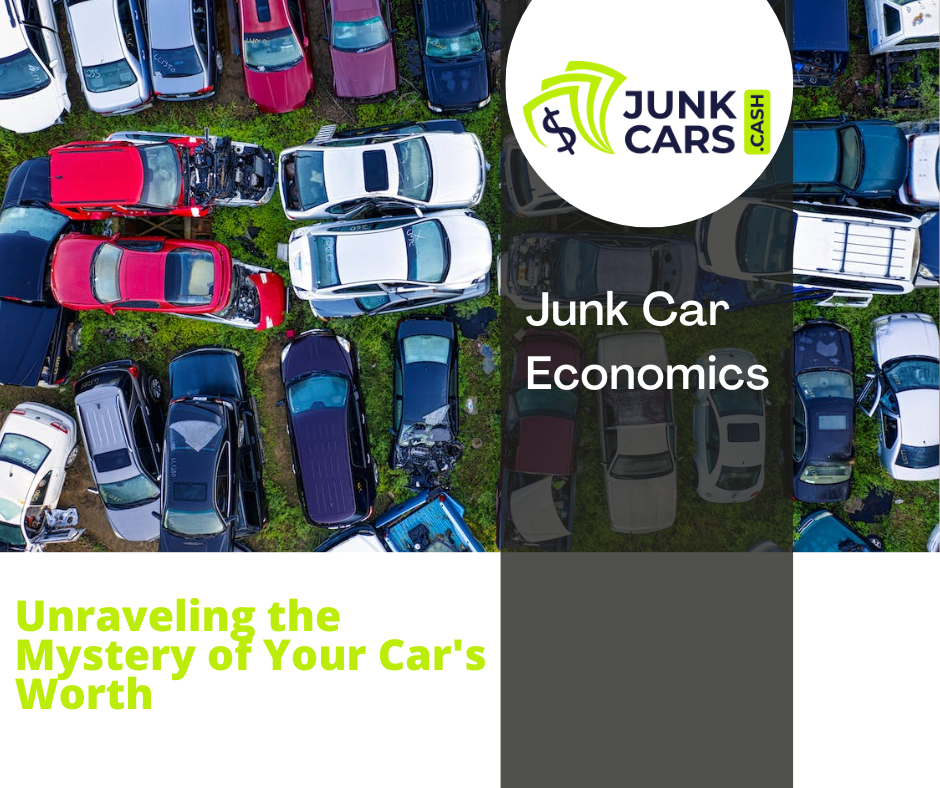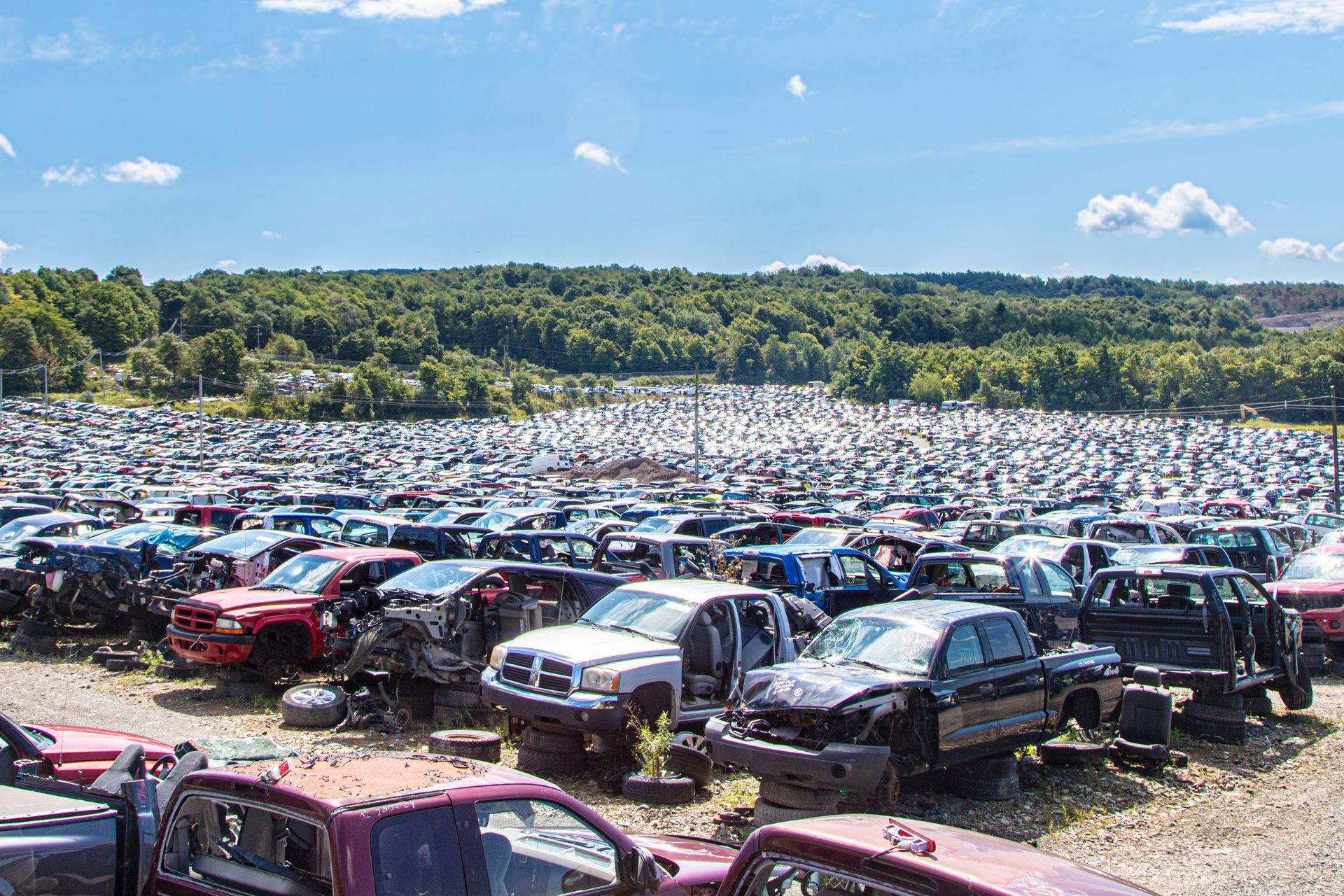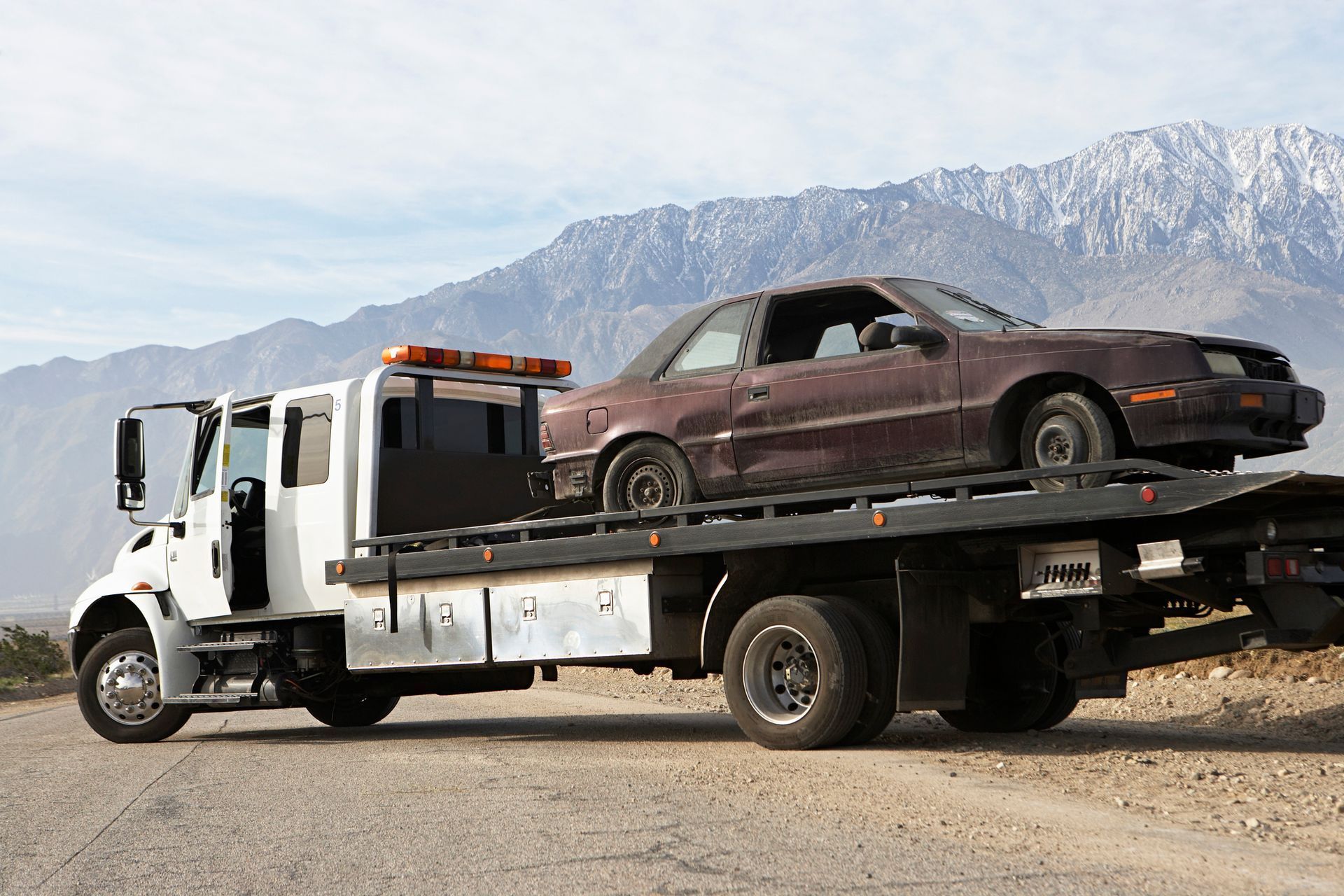Junk Car Economics: Unravelling the Mystery of Your Car’s Worth
December 7, 2023

In the vast world of automobiles, the journey doesn’t always end on a smooth road. Cars age, wear out, and eventually find themselves on the brink of becoming a junkyard resident. However, what many car owners may not realize is that even in their dilapidated state, these vehicles hold a certain economic value. Welcome to the intriguing realm of “Junk Car Economics,” where the worth of your old, beat-up car is far from being a mere scrap metal assessment.
Understanding the Dynamics:
The process of determining the value of a junk car is a multifaceted one. Several factors come into play, and each contributes to the overall appraisal of the vehicle. Here’s a comprehensive breakdown of the key elements that unravel the mystery of your car’s worth:
Current Market Conditions:
The demand for scrap metal fluctuates, impacting the value of your junk car. Economic conditions, global events, and industry trends all play a role in shaping the market. Understanding these factors helps to gauge the optimal time to sell your car for the best value.
Vehicle’s Weight and Composition:
Scrap yards typically assess the
value of a junk car
based on its weight and the materials it contains. Heavier cars often yield higher payouts, and the type of metal – whether it’s steel, aluminum, or a mix – can influence the valuation.
Condition of the Vehicle:
The state of your car significantly affects its worth. While it’s called a “junk” car, the extent of damage, missing parts, and overall condition all play a role. A relatively intact car with salvageable components might fetch a better price compared to a completely totaled vehicle.
Make, Model, and Year:
The make, model, and year of your car contribute to its value, even in a junk state. Some models have parts that are in higher demand, leading to increased salvage value. Additionally, classic cars or those with unique features may fetch a premium.
Local Scrap Metal Prices:
Regional variations in scrap metal prices can influence the value of your junk car. Researching and understanding the current rates in your area allows you to negotiate a fair deal.
Environmental Regulations:
Stringent environmental regulations can impact the recycling process and, subsequently, the value of your junk car. Cars with hazardous materials or those requiring special disposal procedures may have reduced salvage value.
The Appraisal Process:
When it comes to
selling your junk car
, the appraisal process is a crucial step. Many vehicle owners opt for local scrap yards, salvage yards, or even specialised junk car buyers. The appraisal involves a detailed inspection of your car based on the aforementioned factors, and each element is carefully considered to arrive at a fair price.
During the appraisal, it’s essential to be transparent about your vehicle’s condition. Highlighting any salvageable parts, recent repairs, or valuable components can potentially increase the overall value. Additionally, having the necessary documentation, such as the title and registration, ensures a smoother transaction.
Maximising Value:
While it’s true that a junk car is no longer roadworthy, there are strategies to maximise its value:
Parting Out:
If your car has salvageable components, consider parting it out. Selling individual parts can sometimes yield a higher overall value compared to
selling the entire vehicle to a scrap yard
.
DIY Repairs:
In some cases, making minor repairs or replacing missing parts before selling can increase the car’s value. However, it’s crucial to assess whether the investment in repairs will result in a substantial return.
Compare Offers:
Don’t settle for the first offer you receive. Get quotes from multiple scrap yards or junk car buyers to ensure you’re getting the best possible deal. Be wary of hidden fees or deductions that could impact the final payout.
Timing is Key:
Keep an eye on market trends and scrap metal prices. Timing the sale of your junk car during a peak in the market can lead to a more favourable deal.
Conclusion:
Junk car economics is a fascinating interplay of various factors that collectively determine the value of your old vehicle. Whether you’re looking to dispose of a car that’s been gathering rust in your backyard or considering the potential financial return from a salvageable vehicle, understanding the dynamics of junk car economics empowers you to make informed decisions. From market conditions to the composition of your vehicle, each element contributes to the puzzle, and by unravelling these mysteries, you can navigate the process with confidence and ensure that your junk car doesn’t just fade away but contributes to your pocket in a meaningful way.
The post Junk Car Economics: Unravelling the Mystery of Your Car’s Worth
appeared first on Cash For Junk Cars Milwuakee.

If the title is missing from your old car in Milwaukee, it may make it harder to decide to part with it, but don’t worry! This thorough article reveals Milwaukee junk car buyers that are local and specialise in buying junk cars without titles. One of the best options is Cash for Junk Cars Milwaukee, …
No Title? No Worries! Uncover Local Buyers Who Purchase Junk Cars Without Title in Milwaukee Read More »
The post No Title? No Worries! Uncover Local Buyers Who Purchase Junk Cars Without Title in Milwaukee appeared first on Cash For Junk Cars Milwuakee.

Finding the right buyer when it’s time to sell your old car in Milwaukee is essential to a smooth selling process. Look no further if you’re asking yourself, “Who buys junk cars near me in Milwaukee?” Cash for Junk Cars Milwaukee, the greatest junkyard that pays top dollar for junk cars, is one of the …
Top Picks for Who Buys Junk Cars Near Me in Milwaukee Read More »
The post Top Picks for Who Buys Junk Cars Near Me in Milwaukee appeared first on Cash For Junk Cars Milwuakee.

There are a number of reasons to decide to part with an old or junk car in Milwaukee, a bustling city where the urban landscape blends with a diverse cultural tapestry. Getting cash for cars can be a profitable and simple process, regardless of your reasons for wanting to get rid of it, make some …
Cash for Cars: The Milwaukee Edition – How to Sell Your Junk Car With Ease Read More »
The post Cash for Cars: The Milwaukee Edition – How to Sell Your Junk Car With Ease appeared first on Cash For Junk Cars Milwuakee.

Although it may appear like a simple process, selling junk cars requires navigating a complicated web of factors, particularly in a city like Milwaukee. Knowing the ins and outs of selling junk cars is essential whether you’re trying to make extra money, sell a vehicle that has reached the end of its useful life, or …
Selling Junk Cars 101: What You Need to Know Before Heading to the Junkyard Read More »
The post Selling Junk Cars 101: What You Need to Know Before Heading to the Junkyard appeared first on Cash For Junk Cars Milwuakee.

Milwaukee, a city in central Wisconsin, is renowned for its rich cultural heritage, dynamic community, and varied history. At some point in their lives, Milwaukee residents must say goodbye to their old cars, a process that frequently entails haggling over the best price for your junk car. We’ll explore the art of negotiation in this …
The Art of Negotiation: Getting the Best Price for Your Junk Car in Milwaukee Read More »
The post The Art of Negotiation: Getting the Best Price for Your Junk Car in Milwaukee appeared first on Cash For Junk Cars Milwuakee.

Are you a Milwaukee resident looking to bid farewell to your old car and make some extra cash? Look no further! Milwaukee boasts hidden gems in the form of car junkyards that not only pay generously for your old vehicles but also offer a hassle-free experience. In this guide, we’ll explore these hidden treasures, focusing …
Milwaukee’s Hidden Gems: Car Junkyards That Pay Big for Your Old Cars Read More »
The post Milwaukee’s Hidden Gems: Car Junkyards That Pay Big for Your Old Cars appeared first on Cash For Junk Cars Milwuakee.

Are you a proud resident of Milwaukee trying to get rid of your old vehicle? There’s nowhere else to look! We’ll go over the easiest and most effective ways to junk your car in Milwaukee in this in-depth article. We provide both DIY projects and local services. The Milwaukee Junking Scene Local Junkyards: Your Neighbourhood …
Cash in a Flash: Quick and Easy Ways to Junk Your Car in Milwaukee Read More »
The post Cash in a Flash: Quick and Easy Ways to Junk Your Car in Milwaukee appeared first on Cash For Junk Cars Milwuakee.





